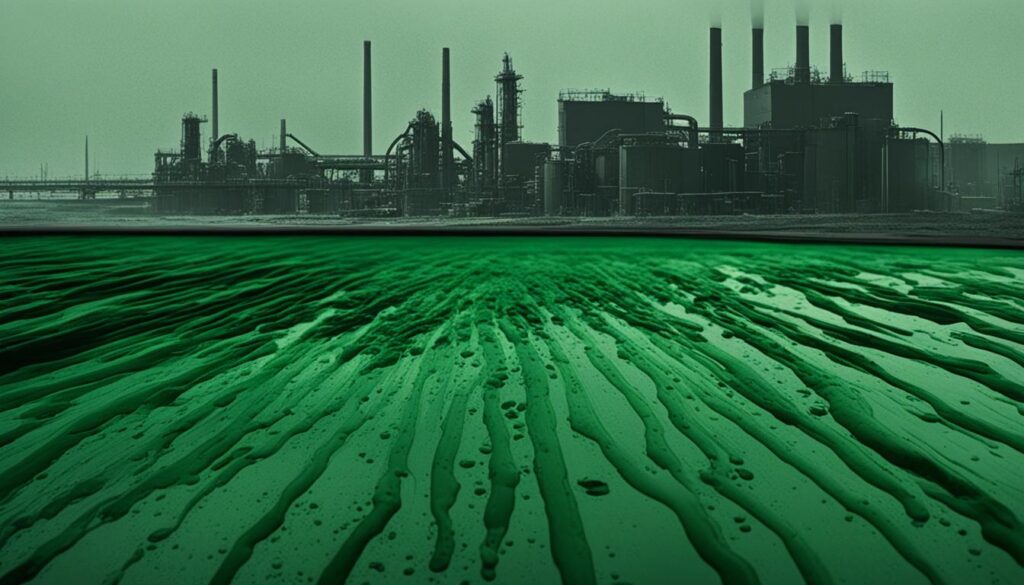Planning a wedding in Punta Cana and looking for the perfect photographers to capture your special day? Look no further! We are the best team of Wedding Photographers in Punta Cana, with over 15 years of experience working and living in this beautiful destination.
At JJ Studio Photo, we specialize in Wedding Photography, Engagement Sessions, Couple Photo Sessions, and Family Sessions. We understand the importance of capturing every precious moment and creating lasting memories that you can cherish for a lifetime. Our team of talented photographers will ensure that every detail is captured with creativity, professionalism, and a keen eye for detail.
Whether you’re having a beachside wedding, a traditional ceremony, or an intimate gathering, our photographers have the expertise to capture the essence of your special day. We are passionate about what we do and go above and beyond to exceed your expectations.
So why trust anyone else with your wedding photography? Contact us today to request a free appointment and let us capture the magic of your special day. Visit our website jjstudiophoto.com for more information and to view our portfolio. Don’t miss out on preserving the memories of your dream wedding in Punta Cana!
Key Takeaways:
- Choose a trusted team of wedding photographers with experience in Punta Cana.
- Specializes in Wedding Photography, Engagement and Couple Photo Sessions, and Family Sessions.
- Capture every precious moment with creativity and professionalism.
- Request a free appointment to discuss your wedding photography needs.
- Visit our website for more information and to view our portfolio.
Water Quality in the Dominican Republic
The quality of water in the Dominican Republic has seen significant improvements in recent years. Through various water treatment processes and initiatives, the Ministry of Public Health has taken proactive measures to ensure the safety and cleanliness of the drinking water.
One of the key methods used is chlorination, which helps eliminate harmful microorganisms and ensures that the water is safe for consumption. By implementing disinfection methods, the Ministry actively works to maintain high water quality standards throughout the country.
Regular monitoring of drinking water is conducted by water testing laboratories in the Dominican Republic. These laboratories analyze important parameters such as bacteria, viruses, pH levels, and chemical contaminants to ensure compliance with safety standards. This monitoring process provides valuable insights into the quality of the drinking water and helps identify any potential risks or issues.
«The Ministry of Public Health is committed to ensuring that the water you drink is safe and clean. Through our rigorous water treatment processes and continuous testing, we strive to provide you with the highest quality of drinking water.»
It is important for travelers to be aware of the ongoing efforts made by the Ministry and to prioritize safe drinking water sources. Bottled or filtered water is recommended, especially for drinking and cooking purposes. By taking these precautions, visitors can ensure their well-being and enjoy their time in the Dominican Republic.
To stay updated on the latest water quality information and guidelines, visit our website jjstudiophoto.com. If you have any concerns or would like to request a free appointment to learn more about water quality in the Dominican Republic, feel free to call us at âï¸ã+1 849 387 9900ã.

Risks and Contamination of Tap Water in the Dominican Republic
While efforts have been made to improve water quality in the Dominican Republic, there are still risks and potential sources of contamination associated with tap water. These risks include inadequate water treatment processes, outdated infrastructure, and contamination from natural sources or human activities.
Contamination can lead to the presence of harmful bacteria, viruses, parasites, or chemical pollutants, which may pose health risks if ingested. Waterborne diseases, such as diarrhea, cholera, and typhoid fever, can result from consuming contaminated tap water.
It is important for travelers to be cautious and take preventive measures to minimize the risk of exposure to contaminated tap water. One way to do this is by using bottled or filtered water for drinking, brushing teeth, and cooking. By opting for these safer alternatives, you can significantly decrease the chances of consuming harmful contaminants.
Additionally, being mindful of potential risks can help you make informed choices during your stay in the Dominican Republic. For example, when consuming beverages or ordering drinks, it is wise to inquire whether the ice or other ingredients were prepared using tap water. By being proactive and aware of the potential risks associated with tap water, you can prioritize your health and well-being.
Remember, your health and safety are paramount, and taking precautions when it comes to tap water safety is a proactive approach to protecting yourself from waterborne diseases.

Stay tuned as we delve deeper into the topic of water treatment and safety guidelines in the Dominican Republic in the next section.
Water Treatment and Safety Guidelines in the Dominican Republic
When it comes to ensuring safe drinking water in the Dominican Republic, the Ministry of Public Health has established comprehensive guidelines. These guidelines are aimed at providing potable water that meets safety standards and is suitable for consumption. The ministry emphasizes the use of chlorine and other disinfection methods during water treatment processes to eliminate or reduce the presence of harmful microorganisms.
To prioritize your health and well-being, it is important to follow these safety guidelines. Here are some essential measures to consider:
- Use bottled or filtered water: Prioritize safe drinking water sources, such as bottled water or water that has been filtered with a reliable filtration system. This helps minimize the risk of consuming contaminated tap water.
- Avoid tap water in certain preparations: Be cautious when consuming ice or drinks that may have been prepared with tap water, as these can also pose a risk of contamination. Opt for beverages and ice made with safe drinking water sources.
By adhering to these guidelines, you can significantly reduce the risk of waterborne diseases and ensure your well-being during your stay in the Dominican Republic.
Testing Drinking Water in the Dominican Republic
When it comes to ensuring the safety of your drinking water in the Dominican Republic, testing is a crucial step. Water testing laboratories in the country conduct regular tests to monitor the quality of drinking water. These tests analyze various parameters, such as bacteria, viruses, pH levels, and chemical contaminants. By conducting these tests, the laboratories ensure that the water complies with safety standards, providing you with the peace of mind that the water you consume is safe and free from harmful contaminants.
For those who prefer to take matters into their own hands, there are also water testing kits and products available. These are designed specifically for testing water quality and can be a convenient option for personal use. By utilizing these testing kits or products, you can independently verify the safety of your drinking water.
By testing your drinking water, you can ensure that it meets the necessary safety standards. Whether you choose to utilize the services of water testing laboratories or use a personal testing kit, the goal is the same – to guarantee the safety of the water you consume.
Common Waterborne Diseases in the Dominican Republic
In the Dominican Republic, there is a risk of contracting waterborne diseases due to the potential contamination of drinking water sources. It is essential to be aware of these diseases and take preventive measures to protect your health during your visit.
Diseases
- Diarrhea: A common waterborne disease that can cause abdominal pain, dehydration, and frequent bowel movements.
- Cholera: A bacterial infection that leads to severe diarrhea and dehydration. It can spread rapidly through contaminated water sources.
- Typhoid Fever: Caused by Salmonella bacteria, this disease can result in high fever, abdominal pain, and gastrointestinal issues.
- Hepatitis A: A viral infection that affects the liver, often transmitted through contaminated water or food.
These diseases are typically contracted through the ingestion of contaminated water or food prepared with contaminated water. To reduce the risk of infection:
- Drink bottled or filtered water to ensure its safety.
- Avoid consuming ice or drinks prepared with tap water.
- Practice good hygiene, such as washing hands with clean water and soap.
- Consume food from reputable sources to minimize the risk of contamination.
By following these preventive measures, you can reduce the likelihood of contracting waterborne diseases and protect your well-being during your stay in the Dominican Republic.
| Disease | Symptoms | Transmission |
|---|---|---|
| Diarrhea | Abdominal pain, dehydration, frequent bowel movements | Consuming contaminated food or water |
| Cholera | Severe diarrhea, dehydration | Ingesting water or food contaminated with Vibrio cholerae |
| Typhoid Fever | High fever, abdominal pain, gastrointestinal issues | Ingesting food or water contaminated with Salmonella typhi |
| Hepatitis A | Jaundice, fatigue, abdominal pain | Consuming food or water contaminated with the hepatitis A virus |
Precautions for Safe Drinking Water in the Dominican Republic
To ensure your safety when it comes to drinking water in the Dominican Republic, it is crucial to take certain precautions and follow the recommended guidelines. By doing so, you can minimize the risk of waterborne illnesses and protect your health during your stay. Here are some important precautions to keep in mind:
1. Use Bottled or Filtered Water
To safeguard your well-being, it is advisable to always use bottled or filtered water for drinking, brushing your teeth, and cooking. This helps ensure that you are consuming water that has undergone proper purification processes and is safe for consumption. Be sure to check the seal and expiration date of bottled water before purchasing it, and opt for reputable brands.
2. Avoid Tap Water in Drinks and Ice
When enjoying beverages or ordering drinks in restaurants, it is best to avoid those that may have been prepared with tap water. This includes ice cubes in drinks. By doing so, you can minimize the risk of ingesting potentially contaminated water and reduce the likelihood of waterborne diseases.
3. Practice Good Hygiene
Good hygiene is vital in preventing the spread of waterborne diseases. Wash your hands thoroughly with soap and clean water before handling food, eating, or touching your face. This simple practice can help eliminate harmful bacteria and viruses that may be present on your hands.
Remember: «Clean hands save lives.»
4. Table: Comparing Different Types of Water Sources
| Type of Water | Advantages | Disadvantages |
|---|---|---|
| Bottled Water | – Guaranteed safety – Convenience – Portability | – Expense – Environmental impact of plastic bottles |
| Filtered Water | – Removes impurities – Cost-effective (if using a reusable filter) | – Requires regular filter maintenance/replacement |
| Tap Water | – Accessible – Economical | – Potential contamination risks – Variable water quality |
5. Schedule a Free Appointment for Expert Advice
If you have any concerns or questions regarding tap water safety in the Dominican Republic, our experts at JJ Studio Photo are here to help. We offer free appointments to discuss your specific needs and provide tailored advice. Contact us today at âï¸ã+1 849 387 9900ã to schedule your appointment.
By following these precautions and guidelines, you can enjoy your time in the Dominican Republic while ensuring safe drinking water for yourself and your loved ones. Prioritizing your health and well-being is essential, and taking these steps will provide peace of mind during your stay.
Importance of Hydration and Eye Health in the Dominican Republic
Proper hydration is crucial for maintaining overall health, including the well-being of your eyes. Keeping your eyes lubricated is essential to prevent dry eyes, which can cause discomfort and affect your vision. This is especially important in a hot and humid climate like the Dominican Republic.
Ensuring you drink an adequate amount of safe and clean water throughout the day is vital for maintaining proper eye hydration and preventing eye-related issues. By prioritizing safe drinking water sources, such as bottled or filtered water, you can ensure optimal hydration and support your eye health.
Remember, staying hydrated is not only beneficial for your eyes but also plays a significant role in maintaining your overall well-being during your time in the Dominican Republic.
| Benefits of Hydration for Eye Health | Ways to Ensure Proper Hydration |
|---|---|
|
|
âProper hydration is key to maintain optimal eye health, especially in a hot and humid climate like the Dominican Republic.â
By following these recommendations and prioritizing hydration, you can support your eye health while enjoying your time in the Dominican Republic. Remember, staying hydrated is not only important for your eyes but also for your overall well-being.
Water Quality Initiatives and Advances in the Dominican Republic
The Dominican Republic has prioritized water quality by implementing various initiatives and advancements to ensure the safety and cleanliness of drinking water. The Ministry of Public Health plays a critical role in this endeavor, employing effective water treatment processes and technology.
One such measure is the use of chlorination and disinfection methods, which are key components of the water treatment process. These methods eliminate or reduce harmful contaminants, such as bacteria and viruses, ensuring that the water meets safety standards.
To maintain a consistent standard of water quality, regular testing of the drinking water is conducted. Water testing laboratories monitor the water quality, analyzing parameters such as bacteria, viruses, pH levels, and chemical contaminants. This comprehensive testing helps ensure compliance with safety standards and identifies any potential concerns that may arise.
Through these initiatives and advances in water treatment, the Dominican Republic is committed to providing clean and safe drinking water for its residents and visitors. These efforts aim to minimize the risk of waterborne diseases and promote public health.
By prioritizing water quality initiatives and implementing effective treatment processes, the Dominican Republic demonstrates its commitment to ensuring the safety and cleanliness of drinking water. These ongoing efforts contribute to the overall well-being of the population and create a positive environment for both residents and visitors.
Summary of Water Safety in the Dominican Republic
In summary, when it comes to tap water safety in the Dominican Republic, it is important to take precautions and prioritize safe drinking water sources. While efforts have been made to improve water quality, there are still potential risks of contamination. To ensure your well-being during your stay in the Dominican Republic, follow these guidelines:
- Use bottled or filtered water for drinking, brushing teeth, and cooking.
- Avoid consuming ice or drinks that may have been prepared with tap water.
- Follow the safe drinking water guidelines provided by the Ministry of Public Health.
- Practice good hygiene, such as washing hands with clean water and soap.
- Consider regular testing of drinking water by water testing laboratories.
By taking these precautions, you can minimize the risk of waterborne diseases and ensure your health and well-being. For more information, visit our website jjstudiophoto.com and request a free appointment âï¸ã+1 849 387 9900ã.
Remember, staying informed and cautious is key to enjoying your time in the Dominican Republic while maintaining your health.
Conclusion
The safety of tap water in the Dominican Republic is a valid concern for travelers. While there have been efforts to improve water quality and ensure safe drinking water, there are still risks of contamination. To minimize these risks, it is recommended to prioritize bottled or filtered water for drinking and cooking.
Following the guidelines provided by the Ministry of Public Health is crucial to ensure the highest standards of safety. Additionally, regular testing of drinking water by water testing laboratories can provide further assurance of its safety. By taking these precautions, you can minimize the risk of waterborne diseases and enjoy your time in the Dominican Republic while staying hydrated and healthy.
For more information and assistance with water safety concerns, visit our website jjstudiophoto.com. You can also request a free appointment by calling âï¸ +1 849 387 9900. Our team is dedicated to providing you with valuable insights and helping you make informed decisions regarding the safety of drinking water in the Dominican Republic.
FAQ
Is the water in the Dominican Republic safe to drink?
While efforts have been made to improve water quality, it is recommended to prioritize bottled or filtered water for drinking and cooking to minimize the risk of waterborne diseases.
What is the water quality like in the Dominican Republic?
Water quality has improved in the Dominican Republic due to various water treatment processes and initiatives. The Ministry of Public Health plays a significant role in ensuring safe drinking water.
What are the risks and contamination of tap water in the Dominican Republic?
Risks include inadequate water treatment processes, outdated infrastructure, and contamination from natural sources or human activities. This can lead to the presence of harmful microorganisms or chemical pollutants.
What are the water treatment and safety guidelines in the Dominican Republic?
The Ministry of Public Health recommends the use of chlorine and other disinfection methods during water treatment processes. It is important to follow these guidelines and prioritize safe drinking water sources.
How can I test the drinking water in the Dominican Republic?
There are water testing laboratories in the Dominican Republic that conduct regular tests to monitor water quality. Travelers can also use water testing kits or products designed for testing water quality.
What are the common waterborne diseases in the Dominican Republic?
Common waterborne diseases include diarrhea, cholera, typhoid fever, and hepatitis A. These can be contracted through the ingestion of contaminated water or food prepared with contaminated water.
What precautions should I take for safe drinking water in the Dominican Republic?
It is recommended to use bottled or filtered water for drinking, brushing teeth, and cooking. Travelers should also avoid consuming ice or drinks prepared with tap water and practice good hygiene.
How does hydration relate to eye health in the Dominican Republic?
Proper hydration is important for maintaining eye health, especially in the hot and humid climate of the Dominican Republic. Drinking safe and clean water helps keep the eyes lubricated and reduces the risk of dry eyes.
What water quality initiatives and advances have been made in the Dominican Republic?
The Ministry of Public Health has implemented various measures to improve water quality, including water treatment processes and regular testing of drinking water. These efforts contribute to providing clean and safe drinking water.
What is the summary of water safety in the Dominican Republic?
While water quality has improved, it is advisable to take precautions and prioritize safe drinking water sources. By following guidelines and regularly testing drinking water, travelers can minimize the risk of waterborne diseases.







